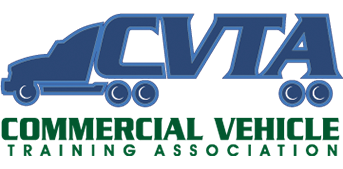The trucking industry has its own language, and understanding common terms can make a big difference for new truck drivers. Whether you’re an aspiring owner-operator or planning to work for a carrier, knowing this terminology will help you communicate effectively with freight brokers, dispatchers, and fellow drivers. This guide breaks down some of the most important trucking terms every driver should know before hitting the road.
1. Hours of Service (HOS)
Regulated by the FMCSA (Federal Motor Carrier Safety Administration), HOS refers to the maximum number of hours a truck driver can operate before taking a mandatory break. These rules help prevent fatigue and ensure road safety.
2. Electronic Logging Device (ELD)
An ELD automatically records a driver’s hours to ensure compliance with HOS regulations. Many trucking industries require ELDs to track driving time accurately.
3. Freight Broker
A freight broker acts as a middleman between shippers and carriers. They help move freight by finding loads for truck drivers and coordinating deliveries.
4. International Fuel Tax Agreement (IFTA)
The IFTA simplifies fuel tax reporting for drivers who operate across multiple states or provinces. Truck drivers must report fuel use and taxes for all miles driven in participating jurisdictions.
5. Gross Combination Weight (GCW)
This term refers to the amount of weight of the entire vehicle, including the commercial motor vehicle, trailer attached, cargo, and passengers. GCW is crucial for staying compliant with weight restrictions.
6. Landing Gear
The landing gear is the retractable support legs located on a full trailer or flatbed trailer. These legs keep the trailer level when it’s detached from the truck.
7. Deadheading
When a truck drives without a load, it’s referred to as deadheading or running with an empty trailer. While necessary at times, deadheading can lead to lost revenue due to fuel costs.
8. Combination Vehicle
A combination vehicle includes a tractor and one or more trailers. Learning to drive a combination vehicle is an essential skill in CDL training.
9. Truck Order Not Used (TONU)
When a driver is assigned a load, but it gets canceled, they may receive a TONU fee to compensate for wasted time and fuel.
10. Moving Freight
The primary job of any truck driver is moving freight safely and efficiently from one location to another. Whether transporting raw materials or consumer goods, truckers play a vital role in keeping supply chains running.
Get the Training You Need at HDS Truck Driving Institute
Mastering trucking industry jargon is just one step toward becoming a successful truck driver. At HDS Truck Driving Institute, we provide hands-on CDL training that prepares you for life on the road. Our courses cover combination vehicles, trailer coupling, weight distribution, pre-trip inspections, and more to ensure you’re ready for your trucking career.
Whether you’re looking for a Class A or Class B CDL, we offer flexible programs that fit your schedule. Our Job Placement Coordinator will assist you in securing a great position after graduation. In as little as four weeks, you can be ready to start your new career.




















